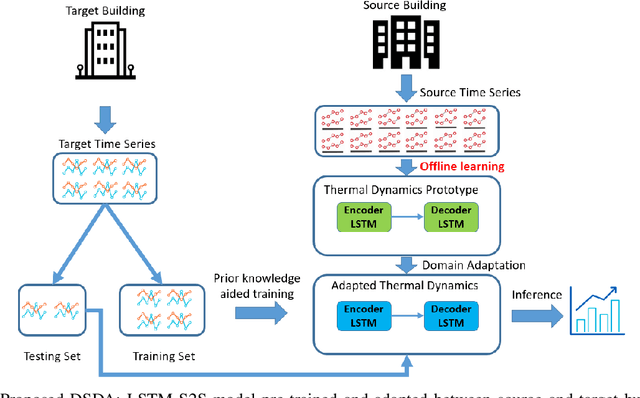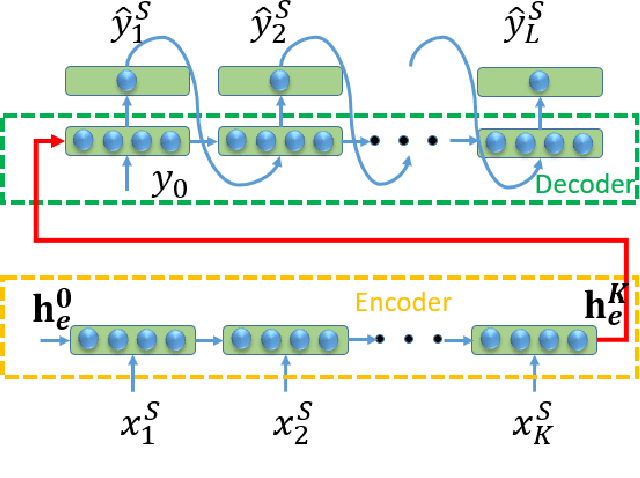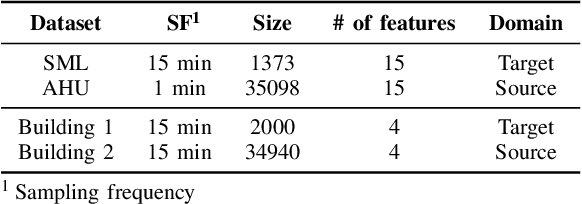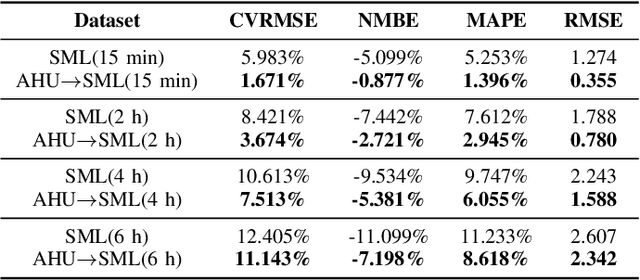Deep Transfer Learning for Thermal Dynamics Modeling in Smart Buildings
Paper and Code
Nov 08, 2019



Thermal dynamics modeling has been a critical issue in building heating, ventilation, and air-conditioning (HVAC) systems, which can significantly affect the control and maintenance strategies. Due to the uniqueness of each specific building, traditional thermal dynamics modeling approaches heavily depending on physics knowledge cannot generalize well. This study proposes a deep supervised domain adaptation (DSDA) method for thermal dynamics modeling of building indoor temperature evolution and energy consumption. A long short term memory network based Sequence to Sequence scheme is pre-trained based on a large amount of data collected from a building and then adapted to another building which has a limited amount of data by applying the model fine-tuning. We use four publicly available datasets: SML and AHU for temperature evolution, long-term datasets from two different commercial buildings, termed as Building 1 and Building 2 for energy consumption. We show that the deep supervised domain adaptation is effective to adapt the pre-trained model from one building to another building and has better predictive performance than learning from scratch with only a limited amount of data.
 Add to Chrome
Add to Chrome Add to Firefox
Add to Firefox Add to Edge
Add to Edge